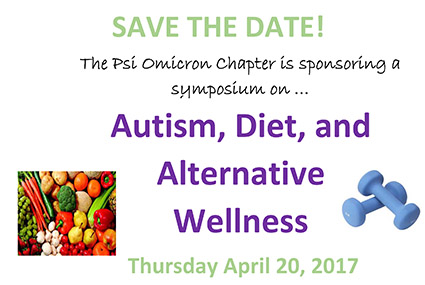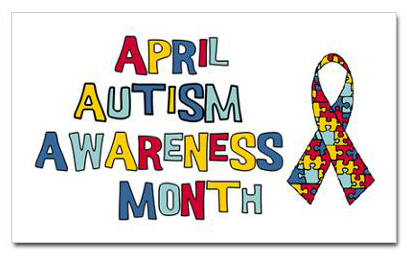April is Autism Awareness Month, and Stevenson University will be participating to bring attention to the condition. They will be hosting an event for employees, as well as a symposium for students.
 Stevenson’s Office of Human Resources will host “Autism 101: An Introduction for Families” which will offer support and raise awareness about the complicated disorder. This event, for employees only, will provide resources and information about autism and its effects on society. There will also be information on how people can engage themselves and support the cause. The event will be held in the Cuvilly Exchange on the Greenspring campus on April 20 at noon. To RSVP for Autism 101, faculty and staff can contact Regina Webb through campus email.
Stevenson’s Office of Human Resources will host “Autism 101: An Introduction for Families” which will offer support and raise awareness about the complicated disorder. This event, for employees only, will provide resources and information about autism and its effects on society. There will also be information on how people can engage themselves and support the cause. The event will be held in the Cuvilly Exchange on the Greenspring campus on April 20 at noon. To RSVP for Autism 101, faculty and staff can contact Regina Webb through campus email.
Students interested in learning more about autism can attend “Autism, Diet, and Alternative Wellness” sponsored by Stevenson’s Psi Omicron chapter of Kappa Delta Pi, the International Education Honor Society. There will be a panel discussion where various experts from the field will provide their insights and answer questions. This event will take place on Thursday, April 20, from 6-8 p.m. in the St. Paul Companies Pavilion on the Greenspring campus.
Congress approved of Autism Awareness Month in 1984 after the Autism Society had campaigned for years to raising awareness to a national level. With over 120,000 members and supporters to date, the Autism Society has been successful thus far in spreading attention about the condition.
According Autism Speak’s website, autism is defined as a “range of conditions characterized by challenges with social skills, repetitive behaviors, speech and nonverbal communication.” Autism is also known as autism spectrum disorder, and as of 2013, the American Psychiatric Association developed four different diagnoses under the condition. These include autistic disorder, childhood disintegrative disorder, pervasive developmental disorder (PDD-NOS) and Asperger Syndrome.
Autism affects one in every 68 children in the United States. This disorder does not only affect the diagnosed child, but the family, friends and peers as well. Learning more about the condition can help prevent future misunderstandings and problems. The causes of autism are very broad and range from genetic to environmental factors. Signs of the condition can appear as early as 18 months, but children are usually diagnosed around the age of 2 or 3.
Several other autism awareness events will occur this month in the Baltimore area including a sensory-friendly grocery shopping night, playgroups, and informational meetings. A calendar and list of events are located at pathfinderforautism.org.


























































